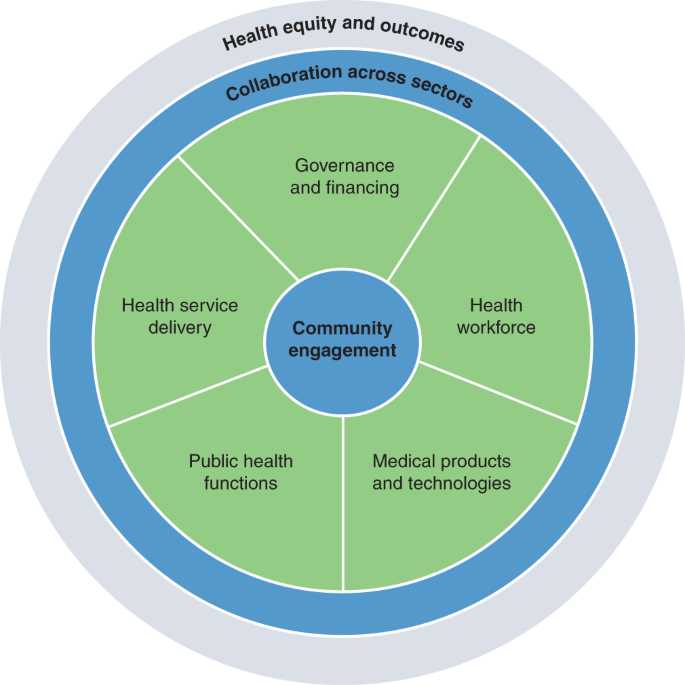
Welcome to Resil Health, where we are dedicated to helping you improve your overall well-being and build resilience. We understand the importance of adaptability and the impact it has on your daily life. Our team of healthcare professionals is here to support you on your journey towards better health and vitality.
At Resil Health, we believe that fitness is not just about physical endurance, but also about mental and emotional strength. We offer a wide range of services to help you achieve optimal health, including personalized fitness plans, nutritional counseling, and stress management techniques. Our goal is to empower you to take control of your own health and well-being.
Resilience is the ability to bounce back from setbacks and recover quickly. It is a skill that can be learned and developed. Our team of experts will work with you to identify areas of improvement and create a customized plan to help you build resilience. We believe that everyone has the potential to overcome challenges and thrive, and we are here to support you every step of the way.
Investing in your health is one of the best decisions you can make. At Resil Health, we are committed to providing you with the tools and resources you need to achieve your health goals. Whether you are recovering from an injury, managing a chronic condition, or simply looking to improve your overall well-being, we are here to help. Contact us today to schedule a consultation and take the first step towards a healthier, happier you.
Section 1: Understanding Resilience
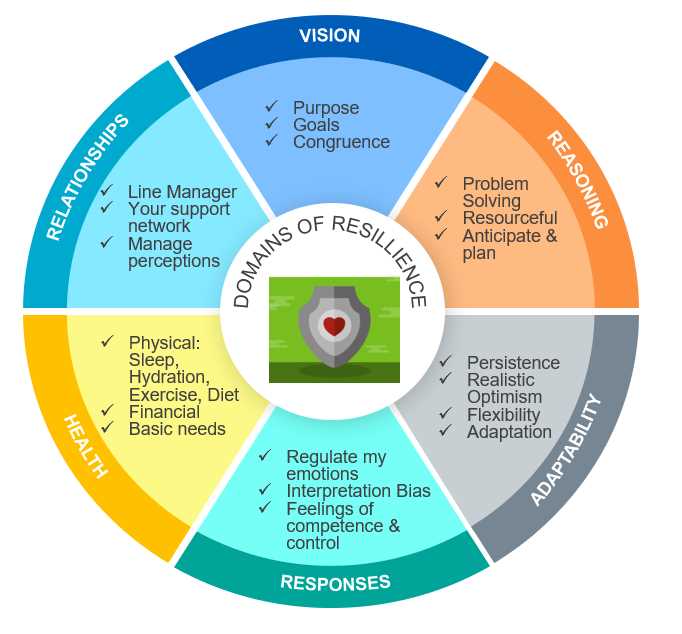
Resilience is a vital aspect of our overall well-being. It is the ability to endure and bounce back from challenges, setbacks, and adversity. In the context of healthcare and fitness, resilience plays a crucial role in maintaining and improving our physical and mental health.
When we have a high level of resilience, we are better equipped to handle the ups and downs of life. It allows us to recover quickly from stress, adapt to changes, and maintain our vitality. Resilience is not about avoiding difficulties, but rather about developing the skills and mindset to navigate them effectively.
Building resilience involves various factors, including physical fitness, mental and emotional well-being, and social support. Taking care of our bodies through regular exercise, proper nutrition, and adequate rest can enhance our ability to bounce back from physical challenges.
At the same time, cultivating a positive mindset, managing stress, and seeking support from friends, family, or professionals can strengthen our mental and emotional resilience. It is important to acknowledge that resilience is a skill that can be developed and improved over time.
| Key Aspects of Resilience | |
|---|---|
| Endurance | The ability to withstand and persist through difficulties and challenges. |
| Recovery | The ability to bounce back and recover quickly from setbacks or stressful situations. |
| Adaptability | The capacity to adjust and adapt to changes or unexpected circumstances. |
| Vitality | The state of being strong and full of energy, both physically and mentally. |
Understanding resilience is the first step towards building and improving it. By recognizing the key aspects and working on developing these skills, we can enhance our overall well-being and lead a more resilient life.
The Importance of Resilience
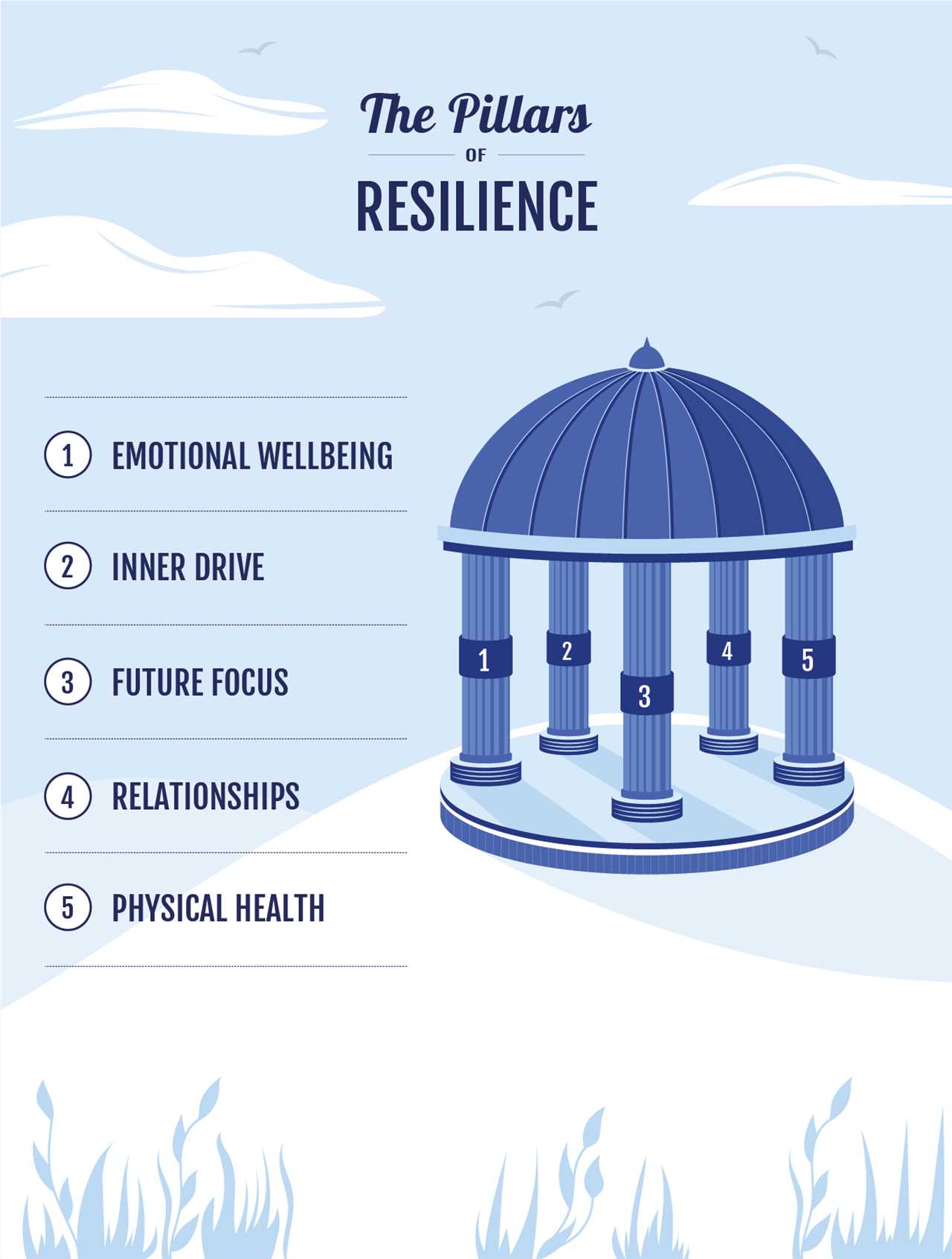
Resilience plays a crucial role in our overall well-being and is essential for our recovery, fitness, and strength. It is the ability to bounce back from challenges and adapt to new situations, allowing us to maintain our vitality and adaptability.
In the healthcare field, resilience is highly valued as it helps individuals cope with stress, trauma, and adversity. It enables healthcare professionals to provide high-quality care while maintaining their own well-being. Resilience allows them to face the demands of their work and adapt to the ever-changing healthcare landscape.
Resilience is not only important in healthcare but also in our personal lives. It helps us navigate through life’s ups and downs, build strong relationships, and overcome obstacles. By developing resilience, we can better cope with setbacks and challenges, allowing us to lead a more fulfilling and balanced life.
Building resilience involves developing skills such as problem-solving, positive thinking, and emotional regulation. It also involves maintaining a healthy lifestyle, including regular exercise, proper nutrition, and sufficient sleep. By taking care of our physical and mental well-being, we can enhance our resilience and improve our overall quality of life.
Resilience is a lifelong journey that requires continuous effort and practice. It is not something that we are born with, but rather something that can be developed and strengthened over time. By prioritizing resilience and investing in our well-being, we can better navigate the challenges that life throws at us and lead a more fulfilling and resilient life.
| Key Points: |
|---|
| – Resilience is crucial for our recovery, fitness, and strength. |
| – It allows us to adapt to new situations and maintain our vitality. |
| – Resilience is highly valued in the healthcare field. |
| – It helps healthcare professionals cope with stress and adversity. |
| – Resilience is important in our personal lives as well. |
| – It helps us navigate through life’s challenges and build strong relationships. |
| – Building resilience involves developing skills and maintaining a healthy lifestyle. |
| – Resilience is a lifelong journey that requires continuous effort and practice. |
Factors That Influence Resilience

Resilience is the ability to bounce back from adversity and maintain strength, adaptability, and fitness in the face of challenges. It is a key factor in improving overall well-being and building resilience. There are several factors that influence resilience and contribute to the ability to recover and thrive:
| Factor | Description |
|---|---|
| Physical Wellbeing | A strong foundation of physical health and fitness can enhance resilience. Regular exercise, proper nutrition, and adequate rest contribute to endurance and vitality. |
| Mental and Emotional Health | Positive mental and emotional health, including self-awareness, emotional regulation, and the ability to cope with stress, are crucial for resilience. Developing healthy coping mechanisms and seeking support when needed can improve overall well-being. |
| Social Support | Having a strong network of supportive relationships can provide a sense of belonging, connection, and encouragement. Social support is essential for resilience as it provides emotional and practical assistance during challenging times. |
| Problem-Solving Skills | The ability to effectively problem-solve and find solutions to challenges is a key factor in resilience. Developing problem-solving skills can help individuals navigate obstacles and find ways to overcome them. |
| Optimism | A positive outlook and optimistic mindset can enhance resilience. Believing in one’s ability to overcome difficulties and viewing setbacks as opportunities for growth can contribute to increased resilience. |
| Adaptability | The ability to adapt to changes and uncertainties is essential for resilience. Being flexible and open to new ideas and approaches allows individuals to navigate challenges and adjust their strategies accordingly. |
By considering and improving these factors, individuals can enhance their resilience and improve their overall well-being. Building resilience is an ongoing process that requires attention and effort, but the benefits are worth it in terms of increased strength, adaptability, and overall quality of life.
How Resilience Affects Well-being
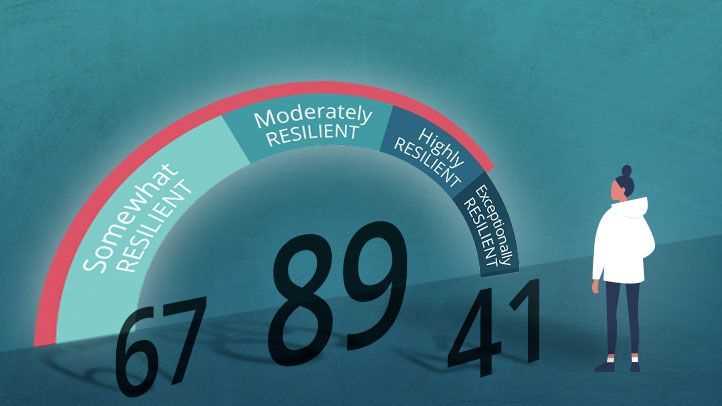
Resilience plays a crucial role in improving overall well-being by enhancing various aspects of our lives. It is the ability to bounce back from adversity, to endure and overcome challenges, and to maintain vitality and adaptability in the face of difficulties.
When we have a high level of resilience, we are better equipped to handle stress and pressure, which are common in today’s fast-paced world. This ability to cope effectively with adversity is essential for maintaining good mental and physical health.
Resilience is like a fitness or strength training for our minds and bodies. Just as regular exercise improves our physical fitness, building resilience through various practices and strategies can enhance our mental and emotional well-being.
Resilience also affects our ability to adapt to new situations and to recover from setbacks. It enables us to navigate through life’s challenges with greater ease and confidence, allowing us to bounce back more quickly and effectively.
Furthermore, resilience is closely linked to healthcare outcomes. Research has shown that individuals with higher levels of resilience are more likely to engage in healthy behaviors, seek healthcare when needed, and adhere to treatment plans. This can lead to better overall health and well-being.
In summary, resilience is a key factor in improving well-being. It provides us with the endurance, vitality, adaptability, and strength to navigate through life’s challenges and maintain good physical and mental health. By building resilience, we can enhance our overall well-being and live a more fulfilling and resilient life.
Section 2: Strategies for Building Resilience

Building resilience is essential for improving your well-being and maintaining a healthy lifestyle. By implementing certain strategies, you can enhance your vitality, fitness, endurance, adaptability, strength, and overall well-being. Here are some key strategies to consider:
- Engage in regular physical activity: Regular exercise is crucial for maintaining good physical and mental health. It helps to improve your fitness levels, boost your energy, and reduce stress. Incorporate activities that you enjoy, such as walking, jogging, swimming, or yoga, into your daily routine.
- Prioritize self-care: Taking care of yourself is vital for building resilience. Make sure to prioritize your well-being by getting enough sleep, eating a balanced diet, and practicing relaxation techniques such as meditation or deep breathing exercises. Taking time for yourself and engaging in activities that bring you joy can also contribute to your overall resilience.
- Build a support network: Surrounding yourself with a supportive community can greatly enhance your resilience. Connect with friends, family, or support groups who can provide emotional support and encouragement during challenging times. Sharing your experiences and feelings with others can help you gain perspective and find solutions to problems.
- Cultivate positive thinking: Developing a positive mindset is essential for building resilience. Focus on your strengths and achievements, and practice gratitude for the good things in your life. Challenge negative thoughts and replace them with positive affirmations. Cultivating optimism can help you navigate through difficult situations with resilience.
- Seek professional help if needed: If you’re facing significant challenges or struggling with your mental health, don’t hesitate to seek professional help. Mental healthcare professionals can provide guidance and support to help you build resilience and improve your overall well-being.
By implementing these strategies, you can enhance your resilience and improve your overall well-being. Remember, building resilience is an ongoing process, and it requires effort and commitment. Embrace these strategies as part of your daily life and enjoy the benefits they bring to your health and resilience.
Developing a Positive Mindset
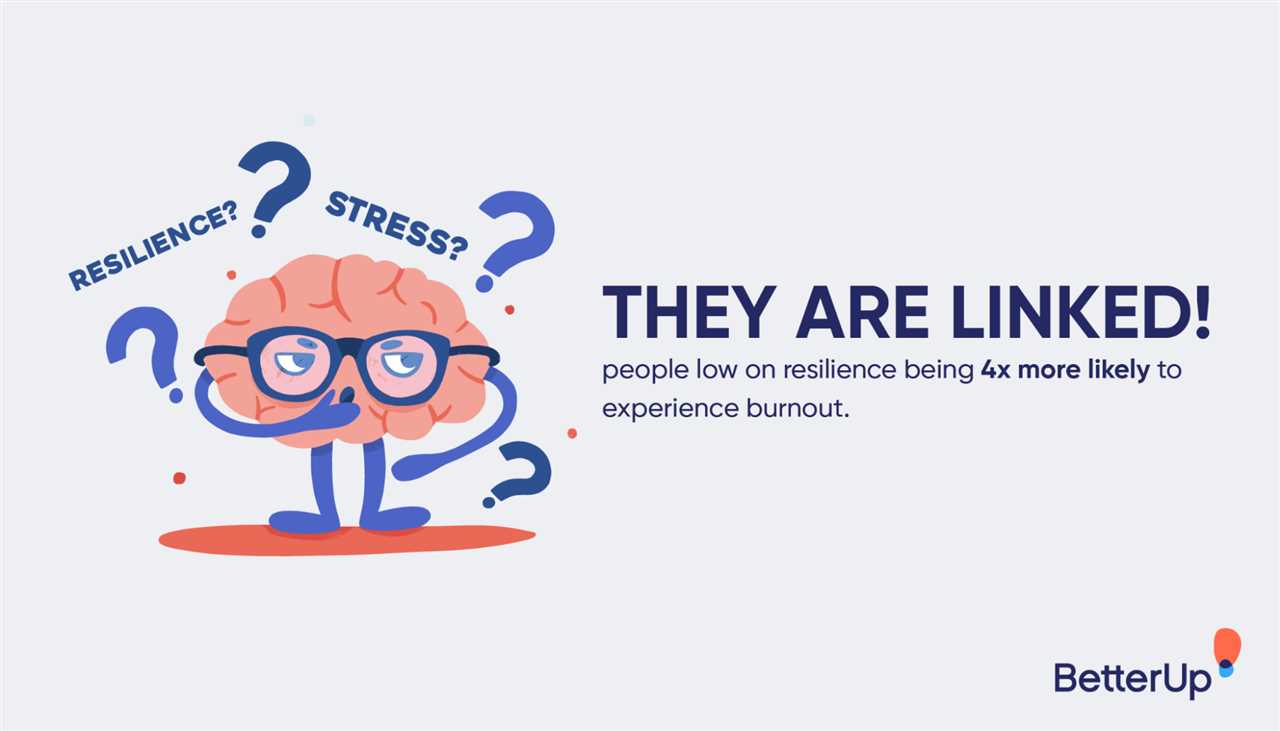
A positive mindset is essential for improving your overall wellbeing and building resilience. It allows you to approach challenges with endurance, adaptability, and strength, enabling you to overcome obstacles and bounce back from setbacks.
Developing a positive mindset involves cultivating a sense of optimism and focusing on the opportunities and possibilities that life presents. It means reframing negative thoughts and beliefs into positive ones, and embracing a mindset of growth and self-improvement.
One way to develop a positive mindset is by practicing gratitude. Taking the time to appreciate the good things in your life can help shift your focus away from negativity and towards the positive aspects. This can improve your mental and emotional resilience, as well as your overall sense of wellbeing.
Another important aspect of developing a positive mindset is practicing self-care. Taking care of your physical health, such as getting regular exercise and eating a balanced diet, can contribute to your overall resilience and vitality. Additionally, taking care of your mental and emotional health through activities like meditation, journaling, or therapy can help strengthen your resilience and improve your ability to cope with stress.
Building a support network is also crucial for developing a positive mindset. Surrounding yourself with positive and supportive people can help you maintain a positive outlook and provide you with the encouragement and support you need during challenging times. It’s important to seek out relationships and connections that promote your wellbeing and resilience.
Finally, developing a positive mindset involves embracing a growth mindset. This means viewing challenges as opportunities for growth and learning, rather than as obstacles. By adopting a growth mindset, you can develop the resilience and adaptability needed to navigate life’s ups and downs with confidence and strength.
In conclusion, developing a positive mindset is essential for improving your overall wellbeing and building resilience. By cultivating optimism, practicing gratitude, taking care of your physical and mental health, building a support network, and embracing a growth mindset, you can develop the strength and resilience needed to thrive in life’s challenges.
Building Strong Social Connections
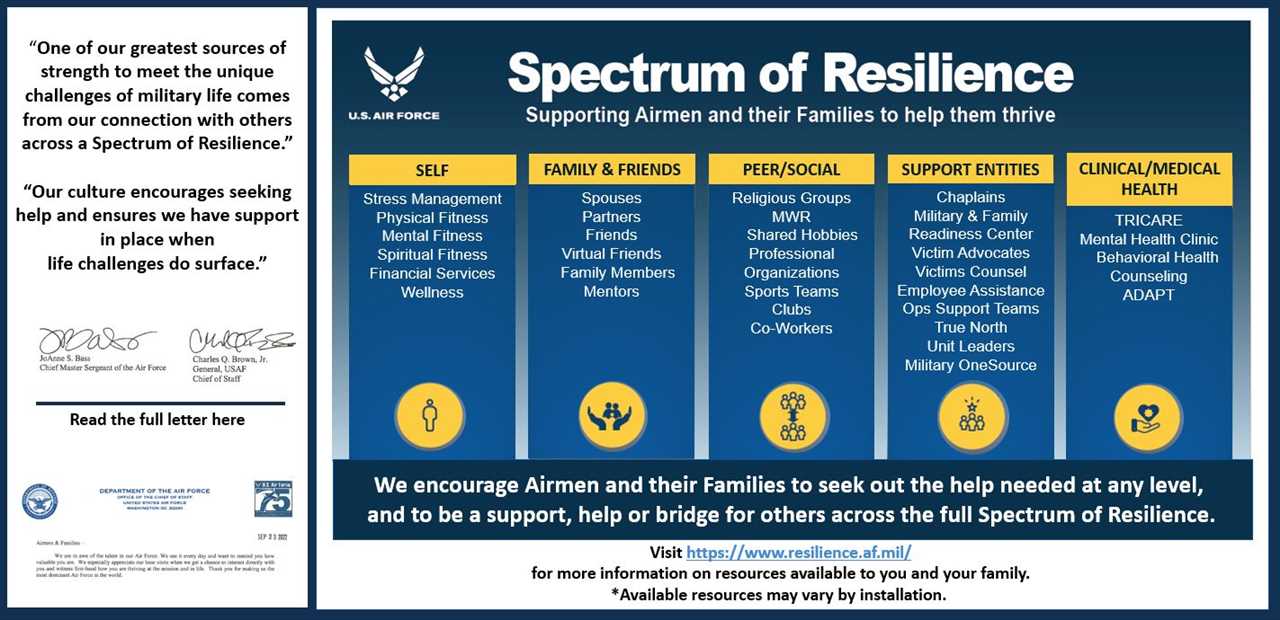
When it comes to improving your well-being and building resilience, strong social connections play a crucial role. Just as recovery and healthcare are important for your physical vitality, having a network of supportive relationships is vital for your mental and emotional adaptability.
Building strong social connections helps to enhance your resilience and endurance in the face of challenges. Research has shown that individuals with a strong support system are better equipped to cope with stress, recover from setbacks, and maintain overall well-being.
So how can you build strong social connections? Here are a few strategies to consider:
| 1. Nurture existing relationships: | Take the time to maintain and strengthen the relationships you already have. Reach out to friends and family regularly, make plans to spend time together, and show genuine interest in their lives. |
| 2. Join social groups or clubs: | Find activities or organizations that align with your interests and values. Joining a club or group allows you to meet like-minded individuals and establish connections based on shared hobbies or goals. |
| 3. Volunteer: | Engaging in volunteer work not only benefits others but also provides an opportunity to meet new people and form meaningful connections. Look for local organizations or causes that resonate with you and offer your time and skills. |
| 4. Attend social events: | Make an effort to attend social events, such as parties, community gatherings, or networking functions. These occasions provide a chance to meet new people and expand your social circle. |
| 5. Use technology: | In today’s digital age, technology can be a valuable tool for building social connections. Join online communities or social media groups that align with your interests, and engage in meaningful conversations with others. |
Remember, building strong social connections is not only beneficial for your mental and emotional well-being but also for your overall fitness and resilience. By investing time and effort into nurturing relationships and expanding your social network, you can enhance your ability to adapt, recover, and thrive in the face of life’s challenges.
Practicing Self-Care and Stress Management
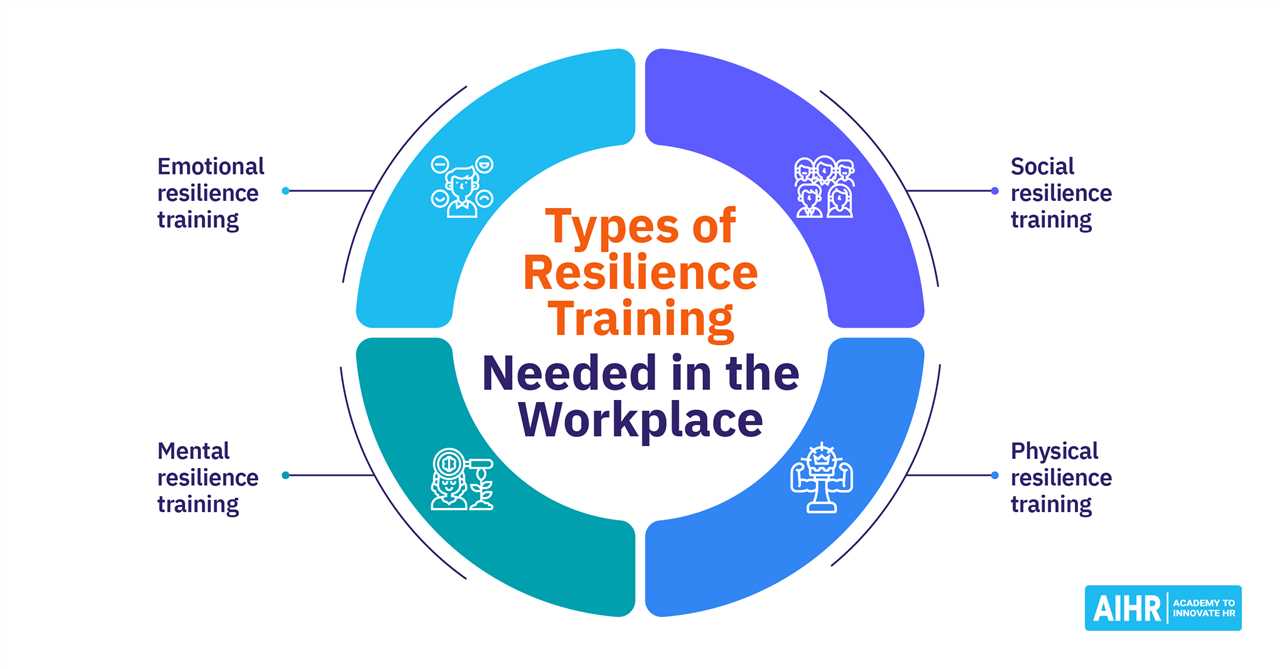
Self-care is a vital component of overall well-being and building resilience. It involves taking intentional actions to prioritize your physical, mental, and emotional health. By practicing self-care, you can enhance your adaptability, strength, endurance, and recovery.
One important aspect of self-care is stress management. Stress is a natural response to challenges and can have negative effects on your health if not properly managed. By implementing stress management techniques, you can improve your resilience and reduce the impact of stress on your well-being.
Here are some strategies for practicing self-care and stress management:
| 1. Prioritize Physical Fitness | Regular exercise can improve your physical fitness and enhance your overall well-being. Engaging in activities such as walking, jogging, or yoga can help reduce stress and boost your vitality. |
| 2. Practice Mindfulness | Mindfulness involves being fully present in the moment and non-judgmentally observing your thoughts and feelings. By practicing mindfulness techniques such as meditation or deep breathing exercises, you can reduce stress and enhance your resilience. |
| 3. Establish Healthy Boundaries | Setting boundaries is essential for maintaining your well-being. Learn to say no to activities or commitments that may overwhelm you and prioritize activities that bring you joy and relaxation. |
| 4. Engage in Relaxation Techniques | Relaxation techniques such as taking a warm bath, listening to calming music, or practicing aromatherapy can help reduce stress and promote relaxation. |
| 5. Seek Support | Building a support network of friends, family, or professionals can provide you with the necessary support during challenging times. Talking to someone about your stressors can help alleviate stress and improve your resilience. |
Remember, practicing self-care and stress management is an ongoing process. By prioritizing your well-being and implementing these strategies, you can enhance your resilience and build a strong foundation for a healthy and fulfilling life.
Section 3: Resilience and Physical Health
Physical fitness plays a crucial role in enhancing resilience and building adaptability. By focusing on improving our physical strength and endurance, we can enhance our overall resilience and improve our ability to cope with challenges and stressful situations.
Regular exercise and physical activity have been shown to have numerous benefits for both our physical and mental wellbeing. Engaging in activities such as walking, jogging, swimming, or weightlifting can help boost our vitality and improve our overall health.
Physical fitness not only improves our physical health but also has a positive impact on our mental and emotional wellbeing. Exercise releases endorphins, which are natural mood-boosting chemicals in our brain. This can help reduce stress, anxiety, and depression, and improve our overall sense of wellbeing.
In addition to the direct benefits on our mental health, physical fitness also strengthens our immune system, making us more resistant to illnesses and diseases. Regular exercise can also help improve our sleep quality, which is essential for our overall health and resilience.
It is important to prioritize our physical health and make time for regular exercise and physical activity. This can be done by incorporating activities we enjoy into our daily routine or by joining fitness classes or sports teams. By taking care of our physical health, we can enhance our resilience and improve our ability to adapt to the challenges life throws at us.
The Link Between Resilience and Physical Health
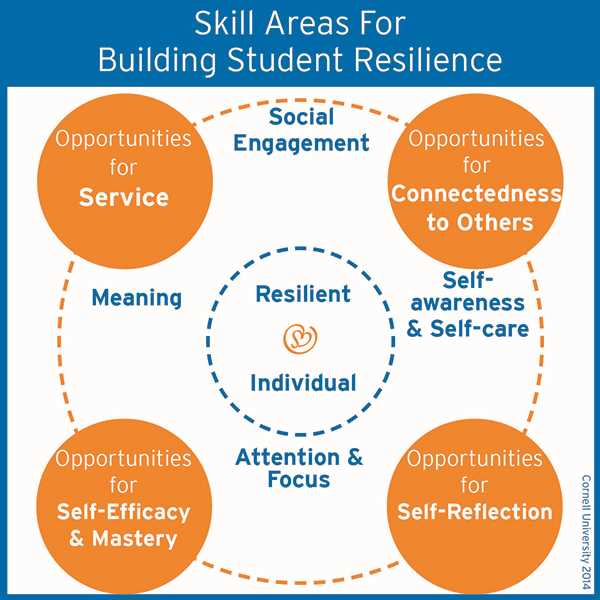
Resilience is not just about mental strength and emotional stability; it also plays a crucial role in maintaining good physical health. The ability to adapt to stress and bounce back from challenges is closely linked to physical vitality and overall well-being.
When we face difficult situations, our bodies go through a process of recovery and adaptation. This process requires physical endurance and fitness. A resilient person is more likely to have the strength and stamina to overcome obstacles and maintain their physical health.
Research has shown that individuals with higher levels of resilience are more likely to engage in healthy behaviors such as regular exercise and maintaining a balanced diet. They have the motivation and determination to prioritize their health and take care of their bodies.
Moreover, resilience can help improve the body’s ability to recover from physical stressors. When faced with an injury or illness, a resilient person is more likely to bounce back quickly and regain their strength and fitness. They have the mental and physical toughness to endure the challenges of rehabilitation and come out stronger on the other side.
Building resilience can also have a positive impact on the immune system. Studies have shown that individuals with higher levels of resilience have a stronger immune response, making them less susceptible to illnesses and infections.
Overall, the link between resilience and physical health is undeniable. By cultivating resilience, we can improve our adaptability, vitality, and endurance. It allows us to maintain our fitness and strength, recover from physical stressors, and prioritize our well-being. So, it’s essential to focus not only on our mental and emotional resilience but also on building our physical resilience.
Incorporating Exercise into Your Resilience Routine

Exercise plays a crucial role in maintaining and improving your overall health and well-being. It not only helps to strengthen your body, but also enhances your mental and emotional resilience. By incorporating regular exercise into your resilience routine, you can boost your physical fitness, endurance, and recovery capabilities, while also promoting vitality and adaptability.
When it comes to healthcare, exercise is often seen as a powerful tool for preventing and managing various health conditions. Regular physical activity can help reduce the risk of chronic diseases such as heart disease, diabetes, and obesity. It can also improve cardiovascular health, strengthen bones and muscles, and enhance immune function.
Exercise is not only beneficial for your physical health, but it also has a positive impact on your mental well-being. Engaging in regular exercise can help alleviate symptoms of anxiety and depression, boost your mood, and improve cognitive function. It can also promote better sleep, reduce stress levels, and increase self-confidence.
When it comes to building resilience, exercise can be particularly effective. Physical activity challenges your body and mind, teaching you to push through discomfort and overcome obstacles. It helps you develop a sense of discipline and determination, which can be applied to other areas of your life.
Incorporating exercise into your resilience routine doesn’t have to be complicated. Start by finding activities that you enjoy and that fit into your schedule. Whether it’s going for a jog, taking a dance class, or practicing yoga, the key is to make it a regular part of your routine.
Aim for a combination of cardiovascular exercises, strength training, and flexibility exercises. This will help improve your overall fitness level, enhance your endurance, and increase your body’s ability to recover from physical and mental stress.
| Cardiovascular exercises | Strength training | Flexibility exercises |
|---|---|---|
| Running | Weightlifting | Yoga |
| Cycling | Bodyweight exercises | Pilates |
| Swimming | Resistance band exercises | Stretching |
Remember to listen to your body and start at a level that is appropriate for your fitness level. Gradually increase the intensity and duration of your workouts as you become stronger and more resilient.
By incorporating exercise into your resilience routine, you can improve your overall well-being, boost your physical and mental strength, and enhance your ability to adapt to life’s challenges. So, lace up your sneakers, grab your yoga mat, or jump in the pool – it’s time to get moving!

I am Patrina de Silva, a psychologist and mental health blogger in Sri Lanka. After obtaining psychology degrees from the University of Colombo and Monash University, I returned home to work as a counselor while also starting the popular blog “Pressy but Happy” to provide advice on psychological issues. Over the past decade, my empathetic articles have made my blog a leading mental health resource in the country. In addition to writing, I maintain a private therapy practice, frequently volunteer counseling time, and conduct seminars, driven by my passion for destigmatizing mental illness and educating the public on the mind-body connection. I strive to be an influential voice in my field through my compassionate approach.
